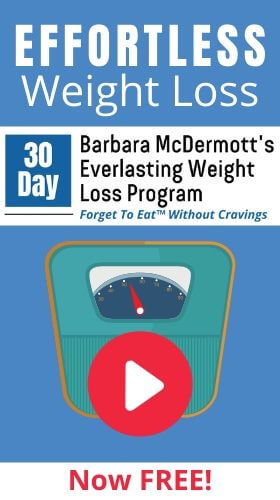When it comes to hormonal weight loss, there are three mighty players that impact your body’s ability to lose weight or gain weight.
- D. Dopamine
- I. Insulin
- E. Endorphin
Each of these influence sugar cravings and weight gain in their own way.
This article will open your eyes to:
- Why you are designed to crave sugar… and how to eliminate cravings.
- Why you feel good (momentarily) when you eat sugar.
- Why weight loss is hard and virtually impossible if you rely on conventional approaches like dieting, portion control, counting calories and deprivation.
So, if you’ve never considered hormonal weight loss as a strategy to reclaim your health, reset your body from sugar burning to body fat burning, I’m thrilled you found us!
Let’s start with a question….
“Why do we LOVE certain foods?”
In a recent ‘SHIFT School’ classroom session with my clients our topic was ‘Food Lover’.
Oftentimes we find ourselves associating that all- powerful emotion, love, with food.
What is that about?
We know this truth, but often ignore it. Food is fuel. To run your car or heat your home, you don’t love gasoline or diesel or coal any better than the other.
However, with certain foods it’s common to use phrases like, “To die for…” or “I’m dying for…” and insert your food of choice.
Food Love, Love With Food, Is a Powerful as “Real” Love
Did you know that certain foods actually trigger the same neurotransmitters and feel good compounds that being in love trigger? Food is so intimately tangled in our psyche and our brain’s firing power that we end up feeling the same powerful influence from food as we do from being in love.
When I work with my SHIFT Insiders clients, which I do on a daily basis, I intimately empathize with their feelings of blame, their feelings of shame, their feelings of not enough, their self-loathing, and their criticism on themselves. We beat ourselves up for not having the willpower to deny our love for certain foods.
The Science Of Weight Loss
Here’s where science not only saves lives but saves our sanity and our sense of self. When we understand that we’re actually wired for desire, we can take all that subjective self-criticism out of our lives and look at food objectively rather than subjectively. It’s pretty cool.
When I Teach About Hormonal Weight Loss, I Use The Acronym, DIE.
That’s DIE as in… to love something, love of food, desire for food, to ‘die’ for that food. Think about a food that you would insert at the end of the sentence, “I die for _____________”.
Which food would you insert?
More times than not it’s some kind of carbohydrate-based food, right?
For example, we usually don’t say, “I’d die for a hard boiled egg”. A hard boiled egg is fat and protein with a little trace of carbohydrate. We don’t usually die for hard boiled eggs.
We usually die for something like macaroni and cheese. “I’m dying for some crusty Italian bread.” “I’m dying for some chocolate cake.” “I’m dying for a slice of pizza.” A bowl of cereal. Rice. Fruit. Oatmeal.
All of those foods are carbohydrates. Interestingly, they are also all plants-based.
Carbohydrates Are Sugar
Sugar triggers the very same emotional signals that love triggers. That’s why the foods that we die for are carbohydrate foods. Carbohydrate foods are sugar foods. And to master hormonal weight loss you need to understand that it’s not just the conventional sugar bowl kinds of foods like soda and candy that triggers the desire wiring.
Sure, we all know that cookies, candy, soda, etc., are sugary foods. But you may not have made the ‘carbohydrates equal sugar’ connection.
Now, here’s where it gets real interesting…
The Entire Spectrum Of Carbohydrate is Sugar Food.
Therefore, all foods with carbohydrates regardless if they are considered healthy, nutritious or junk food should be looked at as…. SUGAR.
For many, this becomes a blurred line biased by limiting belief systems.
But the science is clear. Carbohydrate as a category, every single gram of it breaks down into glucose, a.k.a. sugar.
Even foods like coarse, ancient, multiple and whole grain bread breaks down into glucose, the same way sugar breaks down into glucose.
“But Barb, I only use organic honey. It has medicinal properties. I never eat sugar.”
Your body doesn’t discriminate. It processes organic honey the same as conventional sugar.
So, when you shift from conventional sugar to organic, or raw sugars, you’re not necessarily enhancing your health. You’re definitely not reducing the amount of sugar in your diet. You may be consuming less additives, but the cravings and weight gain factors are equal.
The fact is, any food we attach ‘D.I.E.ing for’ or ‘loving’ to, is generally a carbohydrate food of some sort.
Science Observation: All plants are carbohydrate food.
Weight Gain and Cravings | Why It’s Not Your Fault
Okay, so how does hormonal weight gain work scientifically?
It starts with the understanding that it’s not us, it’s not our lack of willpower, it’s not our lack of discipline. We’re not weak and we’re not a sinner.
We are simply wired for desire.
Here are the facts…
- When we consume any kind of carbohydrate, we get a surge of sugar. Glucose.
- Fruit breaks down into glucose.
- All vegetables break down into glucose. Glucose.
Glucose Is Blood Sugar
Some of us get caught up in trying to figure out which food raises our blood sugar and which food doesn’t raise our blood sugar.
All you need to remember is that carbohydrate food is blood sugar. It increases blood sugar or raises blood sugar because it actually is blood sugar.
When sugar enters our system, a neurotransmitter is immediately released that goes straight to our brain. It gives us a sense of pleasure. This neurotransmitter is called dopamine.
The Role Of Dopamine in Hormonal Weight Loss
Dopamine is that sense of satisfaction you get when…
- You just finished your performance and you got a standing ovation. Dopamine.
- Feeling great in your circle of friends. Everyone’s giving you high fives. Dopamine.
- Thrill driving, weaving through traffic at high speed on a motorcycle. Dopamine.
- Jumping out of an airplane. Skydiving. Dopamine.
Anything involved with a bit of risk triggers a dopamine reward.
Risk-takers enjoy risky activities. They experience that rush or thrill and tend to engage in riskier and riskier activities seeking that next dopamine hit.
The Dopamine / Parkinson’s / Sugar Craving’s Link
Interestingly, those with Parkinson’s have low dopamine and their body craves it. This is why many with Parkinson’s have cravings for carbohydrates, not just sugar. Carbohydrate, especially in concentrated amounts give them the rush of dopamine that their brain is craving.
Sugar spikes dopamine release.
Again, ALL carbohydrate is sugar. We will crave any kind of carbohydrate if we are low in dopamine.
Risk takers get their dopamine high from taking risks. Think about someone doing stunts, It feels great to do stunts. I was a gymnast. I used to get a thrill out of performing stunts. There’s danger. There’s flight. There’s reward with the personal satisfaction of accomplishment. All involving dopamine.
But, just like any kind of stimulant in our body, we become resistant to it when we’re getting it often. So then we need more of it to get the same sense of pleasure and reward.
That’s why those who engage in risky activities or extreme sports exhibit riskier and riskier behaviors. Getting that same hit, that fix of pleasure and satisfaction they are seeking requires more dopamine, more risk taking. The MTV Jackass group from my old town of West Chester, Pennsylvania comes to mind.
While not as extreme, sugar consumption and dopamine rise are the very same ‘seek pleasure’ mechanism. Think about when we have sugar, when we’re eating carbohydrate focused, we’re always looking for that next thing, always looking for that next hit.
You can either do some kind of risky activity to get a dopamine hit or you can eat sugar. Certainly we could argue either way, which one’s healthier for us. But the science is clear, sugar spikes dopamine. We are indeed wired to desire.
The Role Of Endorphins in Hormonal Weight Loss
Another internal chemical compound that factors into hormonal weight loss are endorphins.
Endorphins are secreted by our body and provide a little boost that alleviates stress and actually helps us to buffer pain.
Endorphins are a class of naturally-generated compounds that interact with the same portion of our brain that opiates do. Some people call endorphins our private narcotic.
Endorphins contribute to the ‘runners high’. Activities like group exercising or dancing trigger the release of those “I feel great!”, endorphins.
When we are in some kind of heightened activity, we experience an endorphin release.
Think about this. When I’m in my activity, I also have a blood sugar rise because my invested energy and enthusiasm trigger my liver to release some of the stored glucose into my bloodstream. I get a little boost or emotional high from that sugar assist. It gives me an almost instant fuel translating into more energy.
When we consume sugar, any carbohydrate, the glucose spikes endorphin release.
Gossip / Endorphin Connection
Interesting… another activity that triggers an endorphin release, which I think is really important to understand, is gossip. Think about this.
Now when I say gossip, your mind might’ve gone right to negative or destructive conversations, but even constructive, good gossip can have the same effect.
I love good gossip, right?
Why would our brain want us to engage in gossip?
For social interaction. Because being connected to other human beings is really good, even critical for survival.
The dopamine / endorphin mechanism ensures that we seek and take in sugar. It also ensures that we connect with other people so we are better equipped to survive.
Our body wants to hold on to fuel. Our body wants to have sugar always at the ready to fuel our brain which requires a lot of energy. This is a big part of the reason why weight loss is hard.
Yes, we’re wired to desire a spike of sugar. Is it any wonder that we can be constantly craving carbohydrates?
Cancer cells are engineered to take advantage of those blood sugar spikes, too. To learn more about how sugar feeds cancer go to my post here.
The Role Of Insulin in Hormonal Weight Loss
Dopamine and endorphins are the two emotions or feelings-related body-brain signals that can significantly hamper weight loss. But, insulin is the hormone that wields the most power over whether our body accumulates fat or releases fat.
Insulin = Cravings
Insulin is also our cravings instigator.
Have you ever craved carbohydrates? That’s a silly question because we all do, right? We all have that desire to some degree.
Cravings, whether we think we have a blood sugar ‘problem’ or not, are created by blood sugar.
Insulin is the hormone that’s responsible for keeping your blood sugar in check. When we consume carbohydrate, which is sugar, the amount of sugar in our blood rises. When that happens, our pancreas releases insulin in an amount directly related to how much blood sugar we just took into our body.
The insulin release is required because our cells have a built-in barrier that doesn’t let glucose in unless insulin gives the signal. Isn’t that powerful?
Fatty acids can go into cells. You can freely burn ketones and fatty acids. There is no gatekeeper for fats. But, there is a gatekeeper for glucose/sugar/carbohydrate.
When our blood sugar is elevated due to carbohydrate consumption, insulin’s role is to clear the sugar out of our bloodstream. So, we experience an initial rise in blood sugar from the carbohydrates. Then insulin is released to move the sugar, subsequently creating a drop in blood sugar.
It’s that drop, the initial rise then fall in the amount of blood sugar that triggers cravings for sugar / carbohydrate.
Our brain interprets the drop in blood sugar as, “You are running out of fuel. Get some more… STAT!”
Because sugar as a fuel source is very short-lived, our body is constantly telling us via carbohydrate cravings, to keep refueling.
You Are a Sugar Burner If…
- You are a grazer.
- You’re eating six times a day.
- You’re thinking about your next meal.
- You have incessant thoughts of foods.
- You say, “I love food”, you’re probably a sugar burner.
Those of us who have reacquainted ourselves to burning and operating on body fat and dietary fat, we don’t have those cravings.
We’re not seeking the dopamine and endorphin hits anymore. We don’t need them. We have this even keeled energy and sense of calm. Fact is, we rarely even think about food.
You see, the best hormonal weight loss program is the one where you just forget to eat. Am I right? Give me some of that please!
This powerful science shows us that weight loss is not about willpower. It’s not about discipline. It’s not about control. It’s not about you being ‘not enough’ of anything!
It’s that you are a human being and your brain is wired to desire. It leads all of us to say things like, “I would DIE for __________ right now.” Insert your dopamine, insulin, endorphin carbohydrate food of choice.
I hope this shed some light on your predicament. Being smarter is really critical, especially as we get older. We can’t work harder. We need to work smarter. That’s what it’s all about. Being smarter, slimmer, saner, stronger.
P.S. Can you leave me a comment below? Let me know if this article was helpful.
Frequently Answer Questions On Hormonal Weight Loss
1. What is Dopamine?
Dopamine is a neurotransmitter released by the body upon stimulation. It activates regions of the brain associated with feelings of pleasure and satisfaction.
Dopamine is part of the human reward system and intimately a part of the addiction mechanism. Thrilling activities and eating sugar stimulate dopamine release.
2. What are Endorphins?
Endorphins are a class of compounds generated by the body that interact with the pain-blocking and emotional responding regions of the brain.
Endorpins, when released, alleviate pain and stress by boosting a sense of happiness. They are sometimes referred to as our personal narcotic.
Endorphins are generated when we laugh, sing, exercise, give or receive a hug, experience a strong human connection, or eat sugar.
3. What is Insulin?
Insulin is the omnipotent blood sugar, body fat regulating hormone. When insulin is elevated the body is in fat accumulation mode. When insulin is suppressed the body is in fat release or fat burning mode.
4. What are Cravings?
Cravings are the intense sensation or desire to consume glucose-based foods. Cravings are driven by emotional messengers like dopamine and endorphins but most powerfully by the hormone insulin due specifically to its blood sugar lowering action.
5. What is Hormonal Weight Loss?
Hormonal weight loss refers to managing or manipulating the hormones responsible for weight gain.
Leptin, produced by fat cells, signals us to stop eating. Leptin’s effectiveness wears off the more fat cells we have because our body releases so much leptin that we grow resistant to it. That’s leptin resistance.
Ghrelin is the hormone that tells us to eat. Ghrelin is secreted in its highest amount at about 8 PM. This is the hormone that drives our pre-bed snacking. Ghrelin is more powerful when our blood sugar has fluctuated.
Consuming a carbohydrate based dinner will instigate blood sugar fluctuations which exacerbate ghrelin’s evening power over us.
The single most powerful hormone to manipulate for weight loss is insulin. That’s because when insulin is up body fat burning is severely curtailed. Insulin’s presence turns lipase production off. Lipase is the body’s fat-burning enzyme. Limited lipase equals limited weight loss.

About Barbara McDermott
Regarded as America's #1 Insulin Suppression Coach, Barbara is the co-founder of SHIFT Health & Wellness Solution, and the best-selling author of the groundbreaking book, ‘FOOD B.S.’, With SHIFT, Barbara brings common sense to nutrition, weight loss and health gain. Her refreshing, no nonsense approach to uncovering the truth using non-negotiable rules of science demystifies food and how to defeat chronic disease once and for all.




No comments yet.